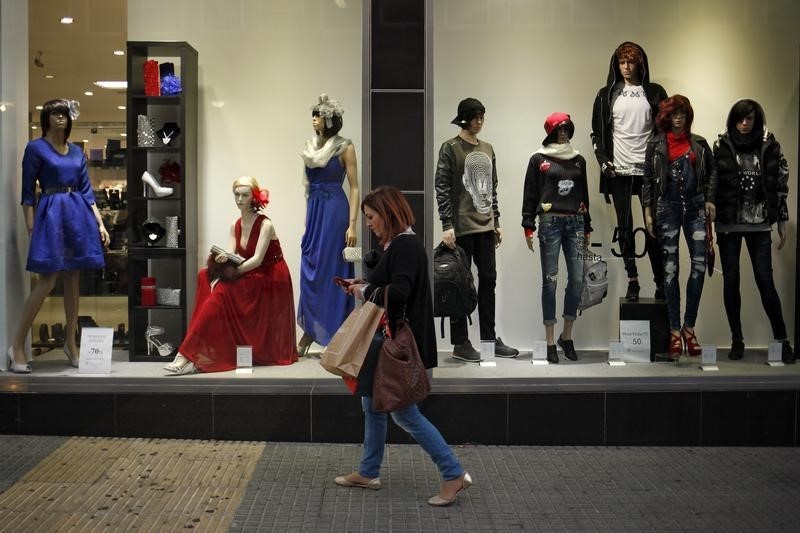* Q2 consumer prices +0.4 pct q/q, 1.0 pct y/y
* Underlying inflation averages around 1.5 pct y/y
* Market implies 50-50 chance of rate cut next week
By Wayne Cole
SYDNEY, July 27 (Reuters) - Australian consumer prices rose at the slowest annual pace since 1999 last quarter while core inflation remained at a record low, setting the stage for a cut in interest rates as early as next week.
The headline CPI index rose just 1.0 percent in the year to June, while key measures of underlying inflation held at 1.5 percent, all well below the Reserve Bank of Australia's (RBA) target band of 2 to 3 percent.
The central bank had already cut rates to an all-time low of 1.75 percent in May following an alarmingly weak inflation report for the first quarter. Many analysts now look for a repeat performance at the RBA's next meeting on Aug. 2.
"We think that this print is low enough to see the RBA provide a bit more support to the economy," said Tom Kennedy, an economist at JPMorgan (NYSE:JPM).
"For us, this is definitely consistent with the idea that the cash rate needs to go lower."
Investors were a little less sure and slightly lengthened the odds of a cut next week to 50 percent 0#YIB: , from 60 percent. A move by November is fully priced in.
Yields on three-year government paper AU3YT=RR stood at 1.56 percent, well under the overnight cash rate, while the Australian dollar AUD=D4 was a shade softer at $0.7501.
The Australian Bureau of Statistics reported its headline consumer price index (CPI) rose 0.4 percent last quarter, from the first quarter when it fell 0.2 percent.
The biggest price gains came in healthcare, petrol, tobacco and new home purchases. That was balanced by falls in domestic holiday travel and accommodation, motor vehicles and telecoms.
THE EXPECTATIONS LOOP
While Australia's economy is growing at a relatively brisk 3.1 percent, it has not escaped the deflationary tides washing around the world. An excess of supply, particularly from China, is weighing on prices for all sorts of tradable goods.
At home, fierce competition and slack in the labour market has dragged wage growth to recessionary lows.
An influx of foreign retailers has fuelled a price war in everything from food to furniture, encouraging consumers to put off purchases in the hope of getting items cheaper later.
An added wrinkle has been a slowdown in rents, which make up a big chunk of the CPI basket. A boom in buying properties to rent out has combined with record levels of new home building to depress growth in rents to levels not seen in more a decade.
All of which has led expectations of future inflation to slip, a trend that threatens to become the sort of self-fulfilling cycle that has so bedevilled Japan and Europe.
"Something like two-thirds of (the components comprising) CPI is now growing at less than 2 percent per annum," noted Michael Blythe, chief economist at Commonwealth Bank.
"The risk is that it does feed into expectations over time as we've seen in other countries," he warned. "It just makes the job of running monetary policy that much harder."
